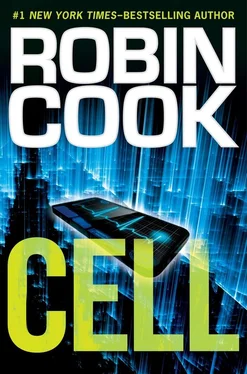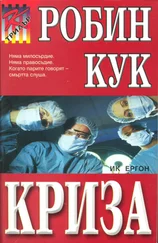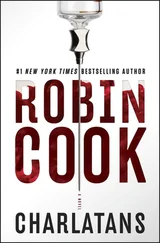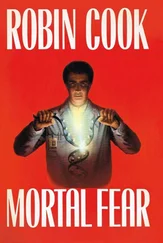“You okay?” Claudine asked, eyeing him.
“Yeah. Fine. Thanks.”
But he wasn’t. Burying a problem only made it fester. The clarity with which Kasey’s death face appeared in his mind’s eye scared him. In the wake of her death he had discovered she’d just been diagnosed with very aggressive stage-four, grade-three ovarian cancer found by a CT scan she’d had at Santa Monica University Hospital. The test had been performed on the Friday before her death, which was early on a Monday morning, so she hadn’t even been told yet. Since the hospital was a sister hospital to George’s, he had used his resident’s access code to view the study. It had been a violation of HIPAA regulations, but at the time he couldn’t help himself. He was lucky he hadn’t been prosecuted, due to the circumstances, yet he had been worried.
“Let’s finish the study,” George said, shaking himself free of his disturbing thoughts.
“There’s only fourteen minutes to go,” Susan said.
Returning to his chair, George forced himself to go back to flipping through the radiology journal, trying not to think. For a time no one talked. No other abnormalities were found besides the two small lesions, which were undoubtedly tumors, but the implications of that finding hung like a miasma over the control room.
“I’m afraid,” Claudine said, breaking the silence and giving voice to what they were all thinking, “that, with the patient’s history, the lesions are most likely metastases of the patient’s original pancreatic tumor.”
George nodded, and said churlishly, mostly to Claudine, “Okay, now, quick reminder: We do not say or indicate in any manner anything to the patient, beyond mentioning that the test went well, which it did. The material will be read by the senior radiology attending, and a report will be sent to the patient’s oncologist and primary-care doctor. Any ‘informing’ will be done by them. Understood?”
Claudine nodded. She certainly understood, but the admonishment and its tone came across harsher than George had intended and created an uncomfortable silence. Susan looked down, busying herself by arranging her paperwork just so.
George realized how he sounded and launched into a little damage control. “I’m sorry. That was uncalled-for. You’re doing a great job, Claudine. Not just today, but in your whole month of rotation.” He meant it, too. Claudine relaxed visibly and even smiled. George sighed as the previous awkwardness dissolved. He needed to get a grip on himself.
“What’s our schedule for the rest of the day?” he asked.
Claudine consulted her iPad. “Two more MRIs. One at eleven, the other at one thirty. Then, of course, whatever comes in from emergency.”
“Any trouble with the two scheduled MRIs, you think?”
“No. Why?”
“I have to step out for two or three hours. I want to go to a conference over in Century City. Amalgamated Healthcare, the insurance giant and our hospital’s new owner, has a presentation planned for would-be investors. It’s something about a new solution they have come up with to end the shortage of primary-care physicians. Can you imagine: a health insurance company solving the primary-care shortage? What a stretch.”
“Oh, sure! An insurance company solution to the lack of primary-care physicians,” Claudine mocked skeptically. “Now, that sounds like a fantasy if I ever heard one, especially with Obamacare adding thirty million previously uninsured into a system that was already functioning poorly.”
“You sure the presentation isn’t being held down at Disneyland?” Susan said as she prepared to go into the imaging room to see to the patient, who at the moment was being slid out of the MRI machine by an attendant.
“Might as well be,” George said. Even though they were making light of the situation, it was a serious issue. “I’m really curious what they are going to say. It would take a decade, at the very least, to train enough doctors to fill the gap, provided they can talk doctors into practicing primary care, which isn’t a given. Anyway, I’d like to go hear what they have to say, if you don’t have any problem.”
“Me?” Claudine asked. She shook her head. “I don’t have a problem. Knock yourself out!”
“Are you sure?”
“Very sure.”
“Okay. Text me if you need me. I can make it back in about fifteen minutes if I’m needed.”
“No prob,” Claudine said. “Gotcha covered.”
“We’ll review them when I get back.” He paused. “You sure you’re okay with this — my leaving?”
“Yes, of course. I’ll be working with Susan again. She doesn’t need either one of us.”
Susan grinned at the compliment.
“Okay, great. Let’s all go in and talk with the patient,” George said, motioning them toward the door.
They put on game faces and entered the imaging chamber. Tarkington was sitting on the edge of the bed, smiling nervously. He was obviously eager for some positive feedback.
The doctors were all careful not to divulge the bad news, knowing that it would most likely mean more chemotherapy, despite the man’s tenuous kidney function. Claudine spoke as reassuringly as she could while George and Susan nodded.
Then, as the attendant and Susan got the patient onto his feet, George and Claudine retreated back to the safety of the control room. Talking with a patient destined to receive very bad news underlined the fragility of life. There was no way to be detached about it.
“That sucked,” Claudine said, sinking into a chair. “I hate not being forthright and honest. I didn’t think that was going to be part of being a doctor.”
“You’ll get over it,” George said with a casualness he didn’t feel.
She looked at him, stunned.
“I didn’t mean it like that. But you will get over it.” George didn’t know why he had just said that. He hadn’t gotten over anything of the sort. He hedged a little. “To some degree, anyway. You have to, or you won’t be able to do your job. It’s not the ‘not being honest’ part that bothers me as much as the shitty situation itself. We just had a conversation with a very nice man in the prime of his life, with a family, who will in all likelihood soon die. That will always suck.” George busied himself with the files of the upcoming cases so as to not have to look directly at Claudine. “But you have to compartmentalize your feelings so you can continue to do your job, which will help save the lives of those who can be helped.”
She looked at him.
George sensed her gaze and felt bad. Repeated exposure to such cases had not deadened his own feelings. He looked up at her. “Look...,” he said, searching for the right words. “It’s part of why I went into radiology. So there would be a buffer between me and the patient. I figured if I could deal with the images rather than the patient, I would be better equipped to handle my job.” He motioned to the adjacent room, where they had just left Tarkington. “But as you can see, the buffer has holes in it.”
They both sat silent for a moment, then George moved to the door. “Well, I have to get a move on—”
“Me, too,” Claudine said softly.
George looked at her quizzically: Me, too, what?
“It’s why I went into radiology. And thanks... for the honesty.”
George gave her a melancholy smile and left the room.
CENTURY PLAZA HOTEL
CENTURY CITY, LOS ANGELES, CALIFORNIA
MONDAY, JUNE 30, 2014, 9:51 A.M.
As George walked into the presentation, he felt like a fish out of water. It was obvious to him that the event was primarily for prospective investors in Amalgamated Healthcare. The room was filled with “people of resources.” In other words, people unlike him. George was immediately struck by their custom-tailored business suits, four-hundred-dollar haircuts, and general air of superiority. He was aware that Amalgamated had recently acquired a number of health care companies and hospitals, including the medical center where he worked. The prospect of offering health insurance on a national scale rather than on a state-by-state basis had been part of their acquisition strategy. George assumed the company had thoroughly combed through the 2,700-plus pages of the Affordable Care Act — aka Obamacare — determined to exploit all of the changes mandating health insurance for everyone.
Читать дальше












